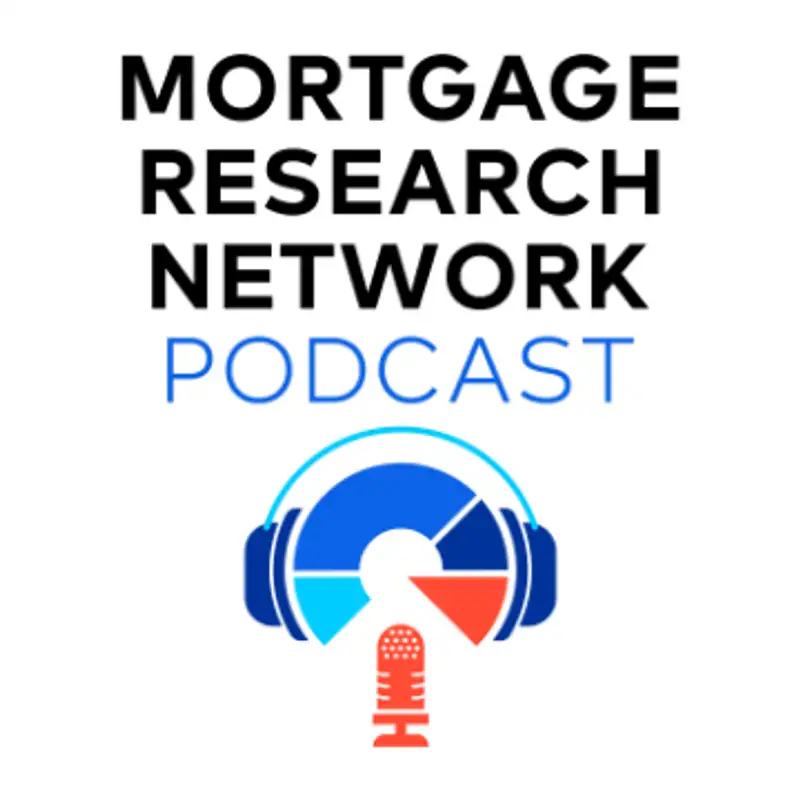Fannie Mae’s 2026 Outlook: Falling Rates, Cooler Prices, More Sales?
Welcome to the Mortgage Research Network Podcast. Just a note that this podcast audio is AI-generated, but based on content that was produced by people. And your hosts, Tim and Craig, are real. Without further ado, let's get into today's topic.
I'm your host, Tim Lucas, editor of MortgageResearch.com and a former mortgage professional, and with me is Craig Berry, a mortgage originator with 25 years experience.
Hi everyone.
Today we're talking about falling mortgage rates. Yep, you heard that correctly. Rates could actually fall over the next year if Fannie Mae's predictions are correct.
Well that's quite different from what we've been hearing lately. What exactly are they predicting?
Well in their August Housing Forecast, they're calling for 30-year fixed mortgage rates to drift down to 6.1% by the end of 2026. Now, I know that's not exactly the 3% rates we saw during COVID, but after watching rates climb relentlessly, even this gradual decrease could be significant.
Hmm... what's the timeline looking like for this decline?
They're expecting rates to average around 6.7% this quarter, then slowly ease down quarter by quarter. We're looking at the annual average dropping from 6.7% in 2025 to 6.2% next year. And you know what's fascinating? Even that half-percent difference could save homeowners tens of thousands over a 30-year mortgage.
That's actually quite significant when you put it that way. What about home prices? Because that's been another massive hurdle.
Well, this is where it gets even more intriguing for homebuyers. They're predicting price increases will seriously slow down. We're looking at a 3.1% rise this quarter, but by 2026, they're only expecting a tiny 1.1% increase. When you factor in typical wage growth, people might actually start catching up instead of falling further behind.
So you're saying incomes could finally outpace home price growth? That would be a huge shift.
Exactly! And there's more. they're forecasting total home sales to jump by 10.3% next year. That's after a slight dip of 0.1% this year. I wonder if homeowners will finally put their homes on the market, spurring more sales next year. Plus, we're expected to see more new construction starting up again.
Those sound like some pretty optimistic predictions. What kind of assumptions are they making here?
You know, that's a crucial point. They're banking on several things: minimal impact from tariffs and deficits, just a brief spike in inflation, stable unemployment, and, here's the big one, significant Fed rate cuts over the next 16 months.
That's quite a lot of dominoes that need to fall into place. How reliable have these kinds of forecasts been historically?
Well, economic forecasting is notoriously tricky. it's like trying to predict where a ship will be in three years while accounting for every possible wave and wind change. But here's what makes this forecast particularly interesting. it's not just one positive indicator, it's multiple factors all pointing in the same direction.
Let's break down what this might mean for different types of buyers.
So for first-time buyers, this could be game-changing. The combination of slower price growth, declining rates, and more inventory might finally give them a fighting chance.
No more waiving all contingencies or competing with dozens of other offers just to get a foot in the door.
That would be quite a shift from the frenzied market we've been seeing.
And here's another interesting angle. this gradual improvement might actually be healthier than a sudden shift. It gives everyone time to adjust their expectations and make more rational decisions. When people can afford homes without stretching themselves too thin, it usually leads to more sustainable growth.
Looking at the bigger picture, what should potential buyers take away from all this?
I think the key message is that while we shouldn't treat these predictions as guaranteed, they represent the first truly positive outlook we've seen in years. But waiting for perfect conditions is usually a losing strategy. The best time to buy still depends more on personal circumstances than market timing.
That's a really balanced way to look at it. Sounds like we might finally be heading toward a more normal market.
Exactly right. Not a return to hyperactive COVID conditions, but something more sustainable and balanced. And after the extremes we've seen lately, that might be exactly what everyone needs.
That's about all the time we have for this topic, but we go into even more detail on the site. To learn more, go to Mortgage research.com and type Fannie Mae forecast in the search bar. We'll see you next time on the Mortgage Research Network Podcast.
